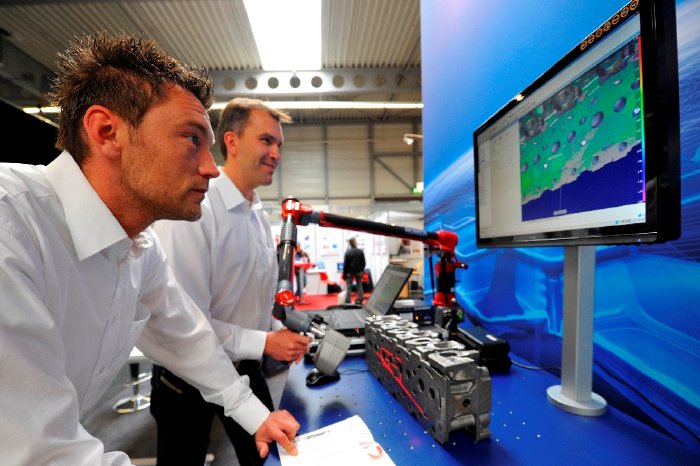The use of generative production techniques for direct, tool-free, individualised forms of production is providing completely new freedoms for design-engineers. In reciprocation with traditional production techniques, the latest trends in rapid manufacturing (RM) offer new possibilities for designing components and new approaches in terms of construction. They are presenting design-engineers with special challenges, however. In this context, on the one hand, undercuts and internal channels are no longer a problem in terms of production techniques; on the other hand, to ensure reproducible, high quality production, the specific processing machine to be used, the specific orientation of the component, the specific materials to be used and the specific sets of parameters must all be specified during the construction stage.
"Generative production techniques have long since left their infancy" highlights Professor Thomas Seul, who is leading the Design-Engineers' Day with his colleague Professor Frank Beneke, both of whom teach at Schmalkalden University of Applied Sciences in Germany: "What initially began as Rapid Prototyping is now serving - in the form of rapid manufacturing - smallest series production."
Freedom in terms of form, variety in terms of application
In many cases, the design engineers of today lack a basic understanding of the layer technologies themselves as well as detailed knowledge concerning special features such as brackets because of insufficiencies during their original teaching. If you compare the conventional manufacturing and the RM of a component with home-building, the differences and advantages offered by the new technology are clear. Conventional manufacturing is equivalent to a home made entirely from stone. The equivalent to an RM-component would be a half-timbered house: one is an energy-saving, light weight construction, one an expensive and high-energy-consuming solid construction.
This is where the Design-Engineers' day starts: in three sessions, professionals explain the way in which rapid manufacturing processes can be used on a practical basis for construction purposes. The first block concerns the constructive implementation of the design, as well as ergonomics requirements and refined rapid prototyping components. In the opening presentation, 'Generative procedures and perspectives for a convergence' are highlighted. The second session focuses on new growth sectors, including the associated potentials for rapid product development and rapid manufacturing. The Design-Engineers' day is rounded off with the presentation of case examples which highlight the implementation of RM processes from constructional points of view.
The world of rapid manufacturing is visiting Erfurt
From 24 to 25 May, experts will be gathering at the 'Rapid.Tech' event in Erfurt for the eighth time to share ideas and discussions about the current positions and new trends in the area of generative manufacturing procedures.
The improved levels of precision, the optimised component qualities and the hugely expanded range of materials are making direct manufacturing using generative processes interesting to more and more sectors. This year's Rapid.Tech is mapping out this development and offering both 'old hands' and newcomers superb opportunities for expanding their knowledge and contacts. Accompanying the specialist trade fair, the users' meeting, the 'CAD/CAM and Rapid Prototyping in Dental Technology', 'Medical Technology', 'Aviation' specialist forums and the Design-Engineers' day will provide a current overview of the status and the development of the production of prototypes, and of the direct production of end-products and their components.
With the 5th STUDENT DESIGN AWARD for Rapid Manufacturing, endowed with a 6,000 Euro prize, talented young newcomers get the chance to stand out through the creative use of generative manufacturing procedures.
The programme for the 'Design-Engineers' Day' and that of the users' meeting as well as additional specialist forums and information on the STUDENT DESIGN AWARD are available for downloading in the internet at www.rapidtech.de.

